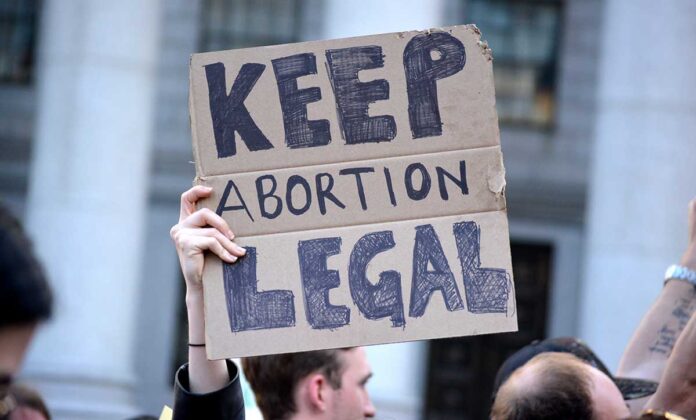Advocates from Planned Parenthood of South Eastern Pennsylvania hosted a virtual teach-in on February 10 regarding a proposed amendment to the Pa. state constitution that would limit access to abortion care. The bill, titled “A Joint Resolution proposing an amendment to the Constitution of Pennsylvania, providing that there is no right to abortion or funding for an abortion,” has not yet passed. However, Planned Parenthood is concerned that the current discussion concerning Roe v. Wade in the Supreme Court could have a ripple effect on other decisions on a state level.
The Supreme Court recently reviewed a 2018 case from Mississippi, Dobbs v. Jackson Women’s Health Organization, which would overturn the 1973 Roe v. Wade court decision that gave people who can become pregnant the constitutional privacy to access abortion health care.
The Pa. Senate bill has been introduced by seven senate members, while the House bill has 63 co-signers.
Limited access to abortion and reproductive health care significantly impacts BIPOC and LGBTQ+ people. The Center for American Progress released a report in September 2021 in which they stated that “legal and systemic barriers frequently already put abortion care out of reach” for BIPOC and LGBTQ+ people.
Diane Chogo, Black Organizing Program Organizer, said at the Planned Parenthood event that many BIPOC, queer, trans, lower-income folks, or folks with disabilities do not have equal access to reproductive health care as their white, cis counterparts.
Specifically, people in rural areas of the country face difficulties in accessing abortion, and they would have even greater difficulty if the bill passes. According to a 2019 study by the Movement Advancement Project, a data-research non-profit, “between 2.9 million and 3.8 million LGBT people — or 15-20% of the total U.S. LGBT population — live in rural areas around the country.”
Closures of reproductive health care centers would not only limit the access to abortions, but also the access to affordable hormonal medication. The National Center for Trans Equality joined a legal brief in 2019 condemning the limitations to Title X funding imposed by the Trump administration.
Referring to Planned Parenthood and other preroductive health care centers, they wrote, “These clinics are particularly well-suited to provide LGBTQ care because of their expertise in providing services that are still stigmatized, such as abortion, contraception, and screening and treatment for STIs.”
Similarly to the proposed PA bill, the limitations to Title X made it more difficult for reproductive health care providers to provide reproductive health care. The Biden administration reversed the Trump rule on November 8, 2021.
Alexis McGill Johnson, President of PP Action Fund, said “we have never been closer to losing a fundamental constitutional right.” As a national organizer, she reminded supporters that especially the South and Mid-West and LGBTQ+ people are vulnerable to the effects of those bills. She claimed that the legislators who are supporting the PA senate bill were the same who opposed COVID mandates, supported anti-trans bills, and were opponents of same-sex marriage.
Signe Espinoza, Executive Director at Planned Parenthood Pennsylvania Advocates, reminded attendees that with Gov. Tom Wolf, Planned Parenthood had a strong supporter in Harrisburg. The Governor promised to veto every abortion bill that meets his desk. However, Wolf would not be able to veto a constitutional amendment.
With the upcoming gubernatorial election in Pennsylvania, Espinoza is hoping for an equally supportive abortion care proponent in Harrisburg. She said, “Reproductive health care is always on the ballot.”
